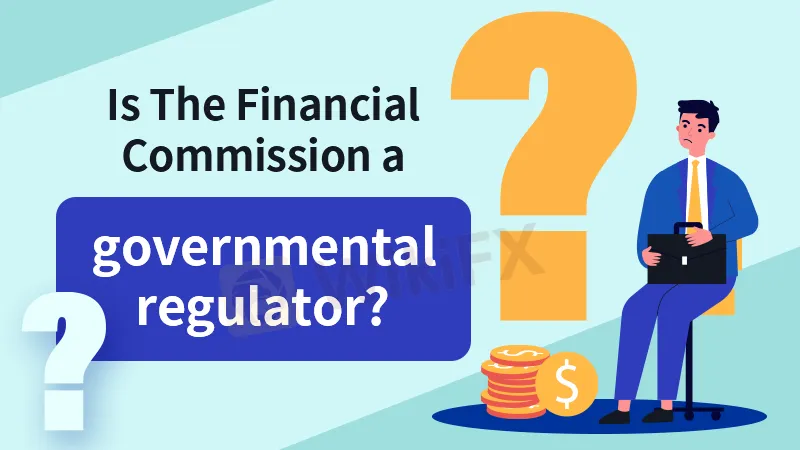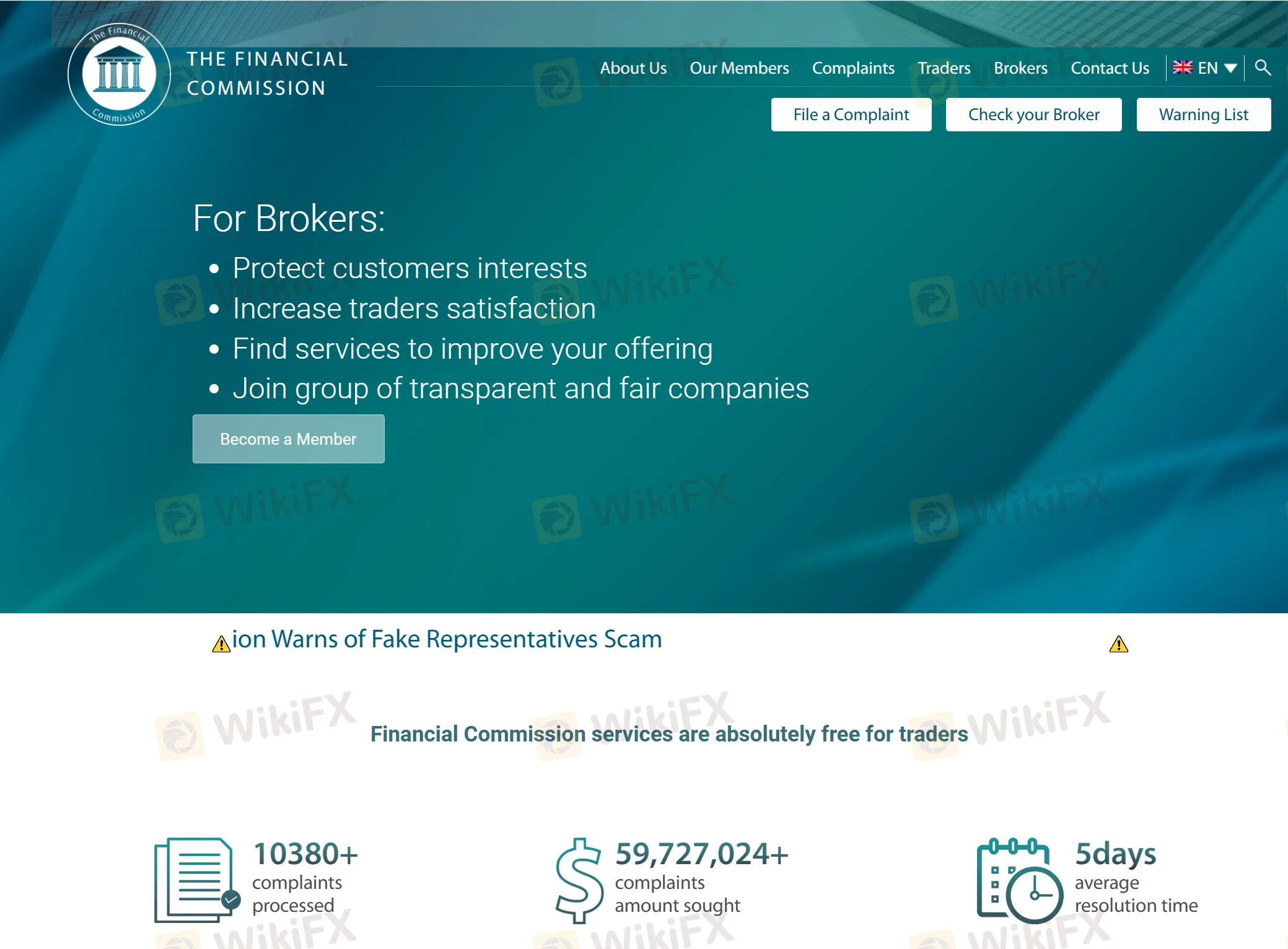简体中文
繁體中文
English
Pусский
日本語
ภาษาไทย
Tiếng Việt
Bahasa Indonesia
Español
हिन्दी
Filippiiniläinen
Français
Deutsch
Português
Türkçe
한국어
العربية
Is The Financial Commission a governmental regulator?
Abstract:With the rise of online trading platforms, the need for robust oversight has never been more critical. Enter "The Financial Commission," a company that has garnered attention for its mission to expose scam brokers. However, a closer examination reveals complexities and considerations that investors should be aware of before placing blind trust in its pronouncements.

With the rise of online trading platforms, the need for robust oversight has never been more critical. Enter “The Financial Commission,” a company that has garnered attention for its mission to expose scam brokers. However, a closer examination reveals complexities and considerations that investors should be aware of before placing blind trust in its pronouncements.
Founded with the goal of safeguarding investors from fraudulent practices, The Financial Commission operates independently of governmental regulatory bodies. While its intentions may be commendable, it's essential to recognize the limitations inherent in its role. Unlike official regulators empowered by legislation, The Financial Commission lacks the authority to enforce compliance or impose sanctions on errant brokers.


Central to understanding The Financial Commission's efficacy is its methodology for identifying and exposing scam brokers. The company employs its own set of criteria, which may not necessarily align with industry standards or represent a consensus within the market. Consequently, there is a degree of subjectivity involved in its assessments, raising questions about the objectivity and reliability of its revelations.
Moreover, it's crucial for investors to exercise discernment when interpreting the findings published by The Financial Commission. While the company endeavors to provide valuable insights, its determinations may not carry the same weight as those made by established regulatory bodies. Investors should view its revelations as one of many sources of information and not as a definitive verdict on a broker's legitimacy.
In navigating the complexities of the financial industry, regulatory exposure in the private sector can offer guidance but should not be solely relied upon. Investors must conduct thorough due diligence, drawing upon a variety of reputable sources, including governmental regulators, industry experts, and independent reviews.
Ultimately, while The Financial Commission plays a role in exposing scam brokers, it's essential for investors to maintain a critical perspective. While its efforts are commendable, they should be viewed as complementary rather than a substitute for official oversight. In the quest for a trustworthy trading experience, prudence and vigilance remain investors' most potent allies.

Disclaimer:
The views in this article only represent the author's personal views, and do not constitute investment advice on this platform. This platform does not guarantee the accuracy, completeness and timeliness of the information in the article, and will not be liable for any loss caused by the use of or reliance on the information in the article.
Read more

RM570,000 Lost in a Gold Trading Scam in Malaysia
In a distressing case of financial deception, a retired female teacher in Malaysia lost RM570,000 of her personal savings and pension to a gold trading investment scheme.

Many Social Media 'Investment Gurus' Are Scammers Preying on Malaysian Traders
Social media platforms have become breeding grounds for scammers posing as investment gurus, exploiting the growing interest in forex and cryptocurrency trading among Malaysians. Fraudulent "financial experts" often create the illusion of legitimacy by offering enticing stock analyses and promises of high returns.

Arumpro Capital Ltd Faces Regulatory Setbacks as CySEC Withdraws CIF Licence
The Cyprus Securities and Exchange Commission (CySEC) has officially withdrawn the Cyprus Investment Firm (CIF) licence of Arumpro Capital Ltd. The decision was finalised during a CySEC meeting on 11 November 2024, marking another chapter in the firm's ongoing regulatory challenges.

Webull Expands Trading Services to Japan via TradingView
Webull launches in Japan, offering low-cost trading for U.S. and Japanese securities via TradingView. Start trading with investments as low as $5.
WikiFX Broker
Latest News
Tokyo Police Arrest 4 for Unregistered FX Trading Scheme
BSP Shuts Down Uno Forex Over Serious AML Violations
ACY Securities Expands Global Footprint with South Africa Acquisition
Rupee gains against Euro
WikiEXPO Global Expert Interview: The Future of Financial Regulation and Compliance
DFSA Warns of Fake Loan Approval Scam Using Its Logo
Consob Sounds Alarm: WhatsApp & Telegram Users Vulnerable to Investment Scams
CySEC Revokes UFX Broker Licence as Reliantco Halts Global Operations
GCash, Government to Launch GBonds for Easy Investments
Bitcoin ETF Options Get Closer to Reality with CFTC Clarification
Currency Calculator


